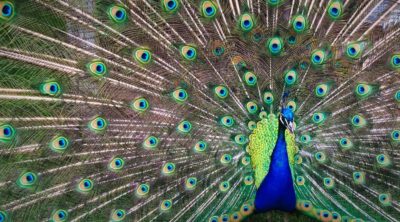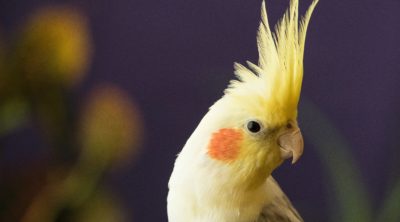We’ve all been there — one minute you’re casually scrolling through Facebook when suddenly, between a barrage of angry political posts and photos of your friends’ babies, you stumble across a video thumbnail of a man with his cute pet monkey, or a family with their “mini” pig that turned out to be a full blown hog, or a woman’s domesticated fox as it pounces playfully between the woman and her puppy.
Maybe you, like most people, decided to press play and soon found yourself entranced by these seemingly odd pairings of wild animals and their human owners. Perhaps you took it to the next level, and even looked into getting a pet wild animal of your very own. If that’s the case, then you aren’t alone. Believe it or not, between 5,000 and 7,000 tigers, for example, are kept as pets according to LiveScience.com. That’s more than exist in the wild! So, what’s the hype about exotic pets? And is it ever really a good idea to keep wild animals as pets? We break it down for you in this post.
Is it even legal to own exotic pets?
It may seem like the answer to this question is an obvious one, but laws vary from state to state. According to FindLaw.com, some states ban exotic pet ownership completely, while other states allow the ownership of a select few exotic animals.
Take Georgia for example. Kangaroos, monkeys, foxes, wolves, crocodiles, alligators, and cobras are all forbidden by law to be domesticated, while Florida on the other hand, allows residents to keep monkeys as pets so long as owners obtain the correct permits.
For a full list of banned exotic pets by state, head to FindLaw.com.
What’s it like for the exotic pets?
While keeping exotic animals as pets might sound cute at first, especially when they’re still babies, they won’t stay small forever. According to Wildlife-Rescue.org, some pets that start out as adorable babies in need of constant nurturing, care and attention, quickly grow up to be more powerful and impossible to domesticate than the owner could have ever prepared for. As a result, many animals are eventually kept in small cages with little to no room to move around while others are sent back into the market to be traded.
Wildlife-Rescue.org puts it best when they say, “There is no wild animal who wants to be kept as a captive by humans; being in captivity does not take away the wild genetic history of any wild animal.”
What’s it like for the people?
Not only is domesticated life hard on animals, but it can pose extreme danger to buyers as well. According to the Centers for Disease Control and Prevention, human contact with wild animals can bring with it dangerous and even fatal diseases like rabies, herpes B virus, and Salmonella.
Exotic pet ownership also brings with it the direct threat of attack and resulting death to owners. In fact, according to LiveScience.com, Born Free USA has documented more than 1,500 attacks and 75 deaths since 1990 — all a direct result of exotic animal ownership.
The Takeaways
Hopefully, by now, the answer is clear. Wild animals are not meant to be in captivity, as they pose a direct threat to human life and will never be fully happy outside of their natural habitat.
If you ever find yourself in contact with a wild animal, do what is right and leave it be, or bring it to a licensed wildlife rehabilitator if the need presents itself.
Ultimately, wild animals deserve freedom just like you and me! Stand up to the trend of exotic pet ownership and keep the planet, it’s inhabitants and ourselves healthy.
To learn more about exotic pet ownership, check our other in-depth article about the trend.

